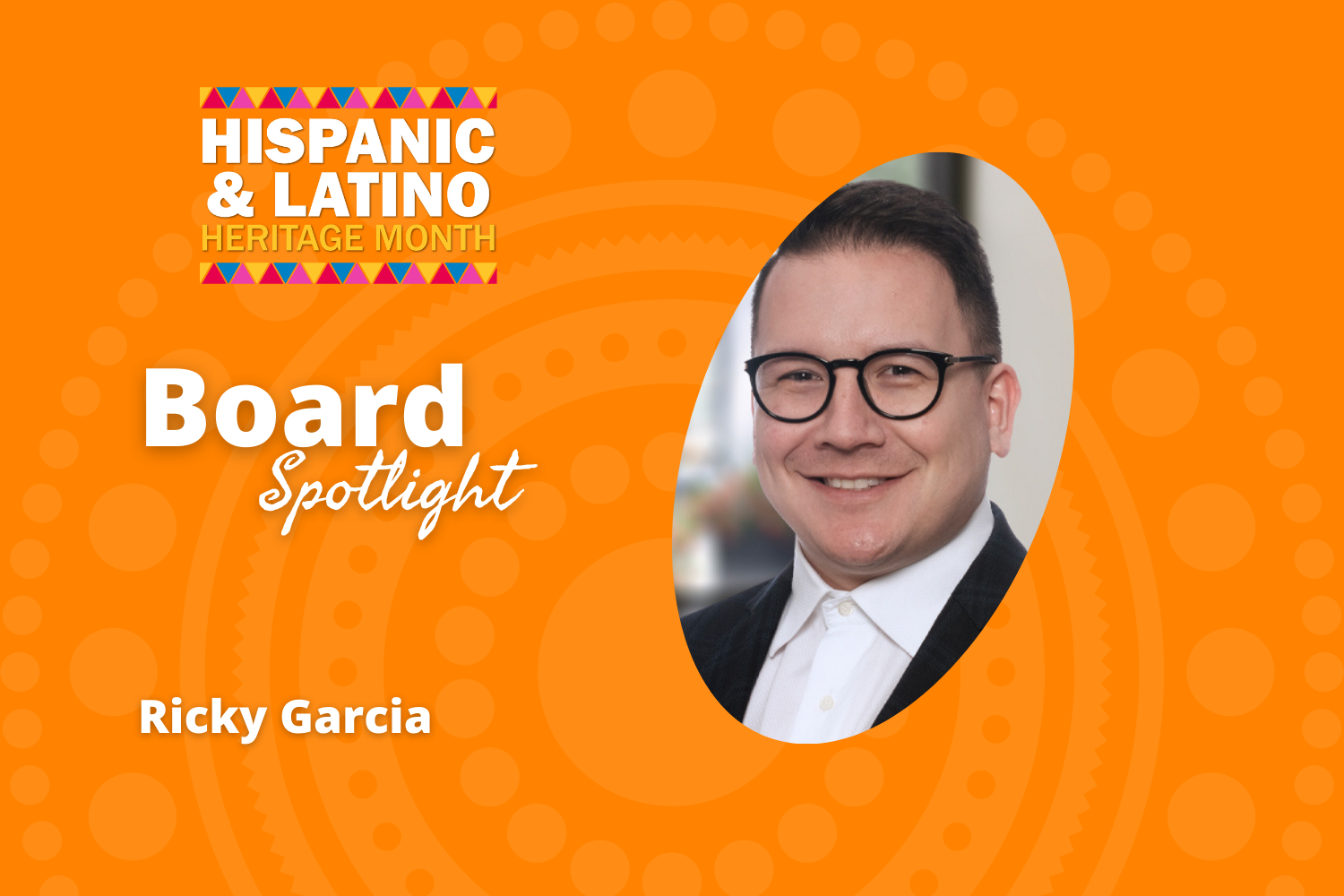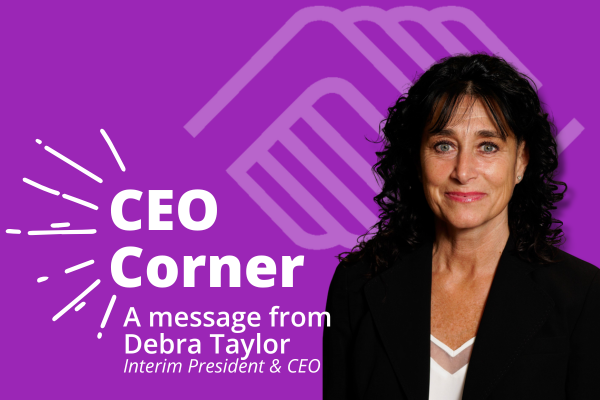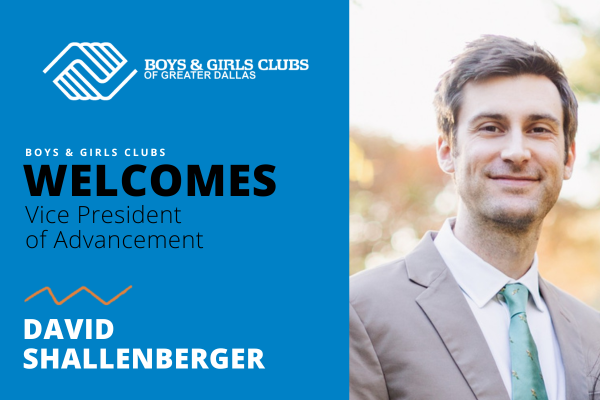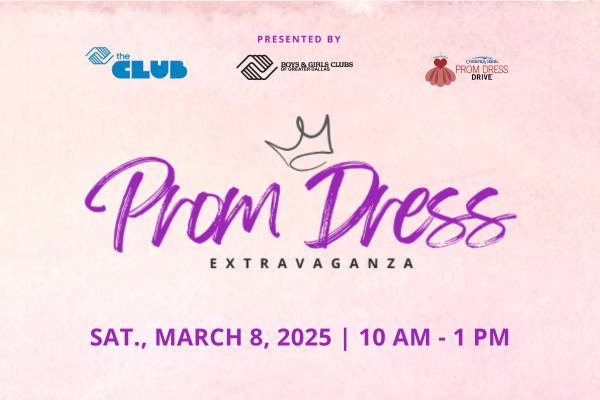Today we present to you, Ricky Garcia! He has been with BGCD as the co-chair for Boys & Girls Clubs of Greater Dallas at Oak Cliff for about five years.
Can you share a bit about your background and family heritage?
I was born and raised in San Antonio, Texas. I identify as a Latinx male. Latinx is a gender-neutral term for anyone who culturally comes from Latin America. My background is predominantly Mexican American. Most of my family came from Mexico or has some level of indigenous background in South Texas.
Are there any Hispanic role models or figures who have inspired you in your personal or professional life?
The best role model I had was my grandmother. She was a community organizer on the West side of San Antonio. When she and my grandfather moved there at a young age, the streets were not paved. She asked for years when these streets would be paved and never got an answer. While being a mother of ten, without even knowing what to call it, she started lobbying the City Council and churches, truly doing grassroots work.
She became a great big voice in local politics, as an advocate for her community, and even for something as simple as her kids being able to ride their bikes down the street. She was a key player in bringing pavement to a largely underrepresented community in South Texas.
Once she did this, she started to tackle more. She was the first person to open an adult senior living home on the west side of San Antonio.
She did a great job at leveraging her voice, which she instilled in her work, her children and grandchildren. She is my best role model when it comes to doing a lot with a little, but also pushed me into the work that I do today.
My grandmother’s name is Lucy Garcia.
How have your cultural roots influenced your career path or educational pursuits?
I think that I bring my cultural background into everything that I do. I am a Senior Project Manager at Charles Schwab. Essentially, I oversee their grant portfolio and give strategic advice and expertise to non-profits across the country. We focus on providing the skills and knowledge in personal finance primarily for youth.
When I think about that, I think of bringing my own life experiences as well as my family’s, to the work I do. I want to look at my job from a diverse perspective. I want to know the cultural norms and habits that create our financial reality.
For example, a lot of our community does not have trust in financial institutions. Rightfully so, due to the way we’ve been treated by them since the country was founded. So, we don’t take advantage of some of the advanced ways of handling our finances, things like investing. We are more likely to put saved cash in a safe place in our home instead of seeking out more risky investment opportunities. So, knowing that I ask myself, “How do I equip youth across the nation with the right information to make an informed decision?” We have to understand their background and where they come from to properly help. I bring this to the forefront because I think it is important to meet people where they are.
Can you share a favorite Hispanic dish or recipe that holds special significance for you or your family?
When I think of Mexican food, I’m really thinking of Tex-Mexican food. Those are the type of dishes I usually go for. I always make sure I stop at a hole in the wall when I go back to San Antonio. I love caldo de pollo, chicken soup. You can feed a lot of people with chicken soup, it’s what we eat when we are sick and cold. It reminds me of home. It’s one of the things I cherish the most.
What advice would you give to current Boys & Girls Club members about embracing and celebrating their own cultural heritage?
Really figure out who you are. Many of us have diverse experiences where we are not monolithic. We aren’t just identifying in one way. Honor and understanding all the different identities we carry is very important.
Recently, I figured out that there is a lot of code-switching involved in our experience. Coming from a diverse community, we tend to try to assimilate in one way or the other. I’ve noticed that I used to try to assimilate by identifying as brown – only to realize I was minimizing the experiences of those whose skin is actually brown and more melanated.
So, I want to uplift those experiences and stories because they weren’t mine, but they were still there. I want to point out that different people who are of Hispanic/Latino descent have different privileges and experiences because of the way we look. I identify as Caucasian because I know that is what I am closer to identifying with. I don’t identify as brown because it feels disingenuous when I the experiences and privileges I’ve experienced.
What do you think is the importance of celebrating Hispanic Heritage Month?
I think it is important to celebrate this month because, in a place like the USA, we would be better global citizens if we uplift and celebrate these parts of us. When we have different people from different backgrounds, it is easier to move forward together. One thing I love about Dallas is that there are so many different groups of people. I can be in Oak Cliff looking for some good soul food, but then go down the street not even a mile or two if I want Mexican food – and they both taste AMAZING. We have so many opportunities to learn from each other and uplift each other. That way we can create a better world together.
It’s important to celebrate culture. It might be efforts during Hispanic Heritage Month or cooking that favorite dish. During the height of COVID, I was really missing my family and culture. We weren’t going to cultural events or seeing family. So, I learned how to make enchiladas during the pandemic. My husband and I sat down to eat it, and I kind of started crying in front of the plate of enchiladas.





